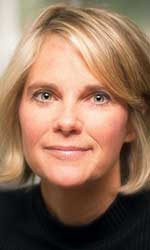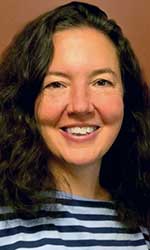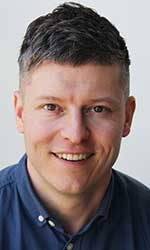Solving poverty in our communities goes far beyond charities and social agencies.

Maria Mayan
Graduates with business, civic planning, arts and other backgrounds have just as much to contribute as social workers, according to University of Alberta poverty researcher Maria Mayan.
“We have great young thinkers within our university who want to make a difference in the world no matter what discipline they are studying,” said Mayan, a professor in the School of Public Health and associate director of the Community-University Partnership for the Study of Children, Youth, and Families who also sits on the Stewardship Round Table for EndPovertyEdmonton.
“The question is: what part of the world are you going to change?”
Mayan’s research team recently produced a discussion paper to describe what an inclusive economy might look like in Edmonton, including providing a definition for what a “good job” looks like. (Hint: it includes livable pay, health benefits and paid sick leave).
That means construction project managers, corporate procurement officers and human resources personnel have an equally important role to play in creating a more inclusive economy through who they hire and what they buy, Mayan explained.
The research team reported that one in 10 Edmontonians – or nearly 120,000 people – experience poverty. And it’s more likely for women, racialized individuals, Indigenous people, single adults and single parents. Up to 70 per cent have work but not enough to pay for their basic living costs.
The research forms the basis for EndPovertyEdmonton’s work encouraging innovative approaches to creating good jobs for a broader range of people as the economy recovers from the COVID-19 pandemic.
“An inclusive approach makes it possible for everyone to participate in the economy instead of being an outcome and a statistic of the economy,” said Mayan.
Cities such as Edmonton, Calgary and soon Fort McMurray are taking the lead with new “social procurement” policies for the contractors they hire. Companies get extra points in the bid-scoring system by demonstrating they are meeting social as well as financial goals.
“Companies demonstrate how they can add social value to the work they will be undertaking for the contract. For example, they could partner with an organization that helps new Canadians find work or they could ensure they are paying all their employees a living wage,” said Susannah Cameron, manager of strategic initiatives for EndPovertyEdmonton.
“In the end, we’re not just helping the City of Edmonton leverage their existing budget but helping companies see all the ways they can contribute to ending poverty in our community,” Cameron said.
Much like the movements that sprang up during COVID-19 to encourage consumers to “buy local” as international supply chains dried up, the pandemic is helping companies realize that broadening their hiring practices is good for business, explained Brooks Hanewich, manager of strategic initiatives for EndPovertyEdmonton.

Susannah Cameron
“Some of the systems that broke with COVID have industry rethinking their labour pools and purchasing because hiring temporary foreign workers and even interprovincial migrants is not as easy,” Hanewich said. “There is a window of opportunity for change right now.”
“There’s also a younger labour force, many of whom are university grads, who are really pushing within their companies, because they want to work for companies that align with their values,” said Hanewich.
EndPovertyEdmonton brings together companies, trainers, unions and large employers to work on overcoming systemic barriers such as racism and helping diverse workers succeed.
It is also part of the Alberta Living Wage Network, which will soon launch an accreditation program for employers who want to demonstrate their pay is fair.
“Jobs don’t just provide income for people,” said Cameron. “They can provide people with social connections, improved health and housing stability, and help to shift our community’s view on the value of things like child care and cultural diversity.
“These sorts of changes illustrate through action how addressing poverty benefits us all and produces a community where everyone can meaningfully participate,” she said.
As an example, Hanewich cited research from Mayan’s paper stating that the 350,000 Indigenous youth eligible to enter the workforce between 2016 and 2026 could boost Canada’s economy by $27.7 billion annually.
In answer to doubters who may think ending poverty is not possible, Mayan responds: “It was very intentional to not call it poverty reduction or alleviation because that means it’s acceptable at a certain level that there are people still living in poverty.
“We do not want people to live with poverty in our city. Whether it’s realistic or not, that’s our strong value position.”
Mayan, Hanewich and Cameron will present their work as part of a free online lecture titled “An Inclusive Economic Approach to Ending Poverty” on Oct. 4. It is part of the This is Public Health series, which has addressed issues ranging from water-borne illness to climate change and limitations on access to health care.
| By Gillian Rutherford
This article was submitted by the University of Alberta’s Folio online magazine. The University of Alberta is a Troy Media Editorial Content Provider Partner.
© Troy Media
Troy Media is an editorial content provider to media outlets and its own hosted community news outlets across Canada.


